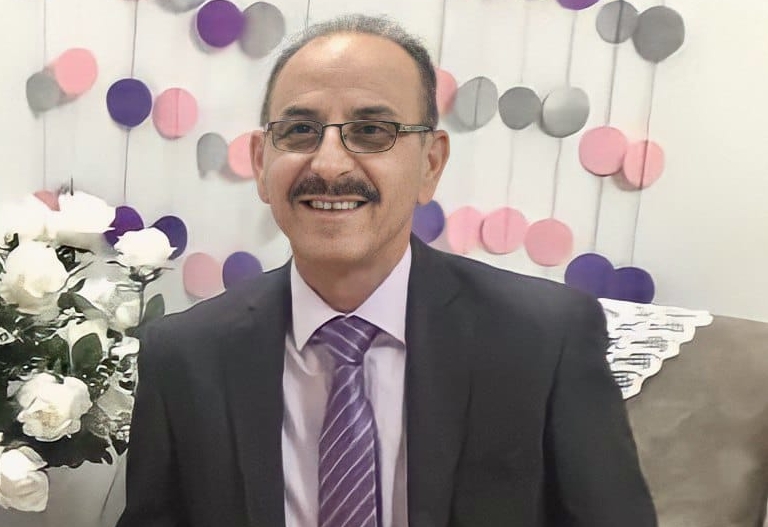On October 24, 2021, journalist Bassem al-Zaak was abducted while he was live-streaming a sit-in organized by a political bloc in Baghdad to protest the results of the parliamentary elections. His family believe that his abductors are members of the Popular Mobilization Units, a large, well-established network of militia groups and that are legally considered part of the Iraqi Armed Forces. More than two years later, his fate and whereabouts remain unknown. Iraqi authorities must reveal his fate and whereabouts and hold those found to be responsible for his enforced disappearance accountable in fair trials.
Here’s what you can do:
Write to the Prime Minister urging him to:
- Order a prompt, independent and impartial investigation to reveal the fate and whereabouts of Bassem al-Zaak and hold those found to be responsible for his enforced disappearance accountable in fair trials that meet international standards.
- Ensure that Bassem al-Zaak’s family are protected from reprisals and extortion for demanding justice.
Write to:
Prime Minister Mohammed Shia’ al-Sudani
Email: humanrights.advisor@pmo.gov.iq
X (formerly Twitter): @mohamedshia
Salutation: Your Excellency:
And copy:
Mr. Haidar Radi Nasir NASIR
Minister & Chargé d’affaires, a.i.
Embassy of the Republic of Iraq
189 Laurier Avenue East
Ottawa, ON K1N 7N3
Tel: (613) 236-9177
Email: info@iqemb.ca
Background
During the mass anti-government protests that began in October 2019, known as the Tishreen [October] protests, security forces including members of the Popular Mobilization Units (PMU), a large network of militias legally considered part of the Iraqi Armed Forces, used lethal force against protestors and pursued a sinister campaign of extrajudicial killings and enforced disappearances.
Very few prosecutions of members of security forces or members of the PMU have taken place for their role in violence against protestors and activists. In a report released in June 2022, the United Nations Assistance Mission to Iraq (UNAMI) was only able to identify the conviction of four “unidentified armed elements” since May 2021 and of six members of the security forces for targeted shootings, killings and abductions. The report added: “UNAMI/OHCHR was unable to identify any other cases that progressed beyond the investigative stage during the reporting period.”
Since 2019, successive Iraqi governments have formed numerous committees to investigate violations committed in the context of the protests at the national and governorate level, but these committees have failed to deliver on truth or justice.
The most notable was the ‘Fact-Finding Committee’, established by Executive Order 293 issued by then-Prime Minister Mustafa al-Kadhimi on October 18, 2020 with the goal of gathering evidence, publishing a comprehensive report, and identifying those responsible for the crimes committed. Under the decree, the Committee has the right to refer cases to the judiciary. However there has been no transparency as to whether this has occurred.
Delayed justice
In a letter from Prime Minister Shia al-Sudani’s Office to Amnesty International on April 2, 2023, the Office said that “the Prime Minister ordered in November 2022 the activation of the work of the [Fact-Finding] committee and outreach to representatives from the demonstrators.”
The Prime Minister’s Office outlined measures the Fact-Finding Committee had taken, including having looked into “more than 215 cases obtained from the Rusafa Central Investigative Court and reviewed more than 5,375 official documents that included medical reports, victim autopsy forms and reports of forensic experts, and the committee continues to examine documents received from courts of appeal.” The Prime Minister also confirmed that reparations had been paid to the families of those killed, amounting to ten million Iraqi dinars for each victim.
However, reparations are not a substitute for establishing the truth or bringing perpetrators to justice, and nearly three years after it was formed, the Fact-Finding Committee has yet to publish any findings.
Missing persons
According to the UN Committee on Enforced Disappearances, Iraq has an estimated range of 250,000 to 1 million missing persons since 1968, making it one of the countries with the highest number of missing persons worldwide.
Enforced disappearance is currently not a crime under Iraqi law and therefore cannot be prosecuted as a distinct offence. On August 6, 2023, the Iraqi Council of Ministers issued a draft “Missing Persons Law” and sent it to Parliament. The draft’s stated aim is to help relatives of the missing learn their fate and be given access to reparations, including by setting up a national commission for the missing.
Yet, this draft law does not criminalize enforced disappearance or outline penalties for perpetrators. As a state party to the International Convention for the Protection of all Persons against Enforced Disappearance, Iraq has an obligation to criminalize enforced disappearances, investigate, bring perpetrators to justice, and ensure reparation for victims.













